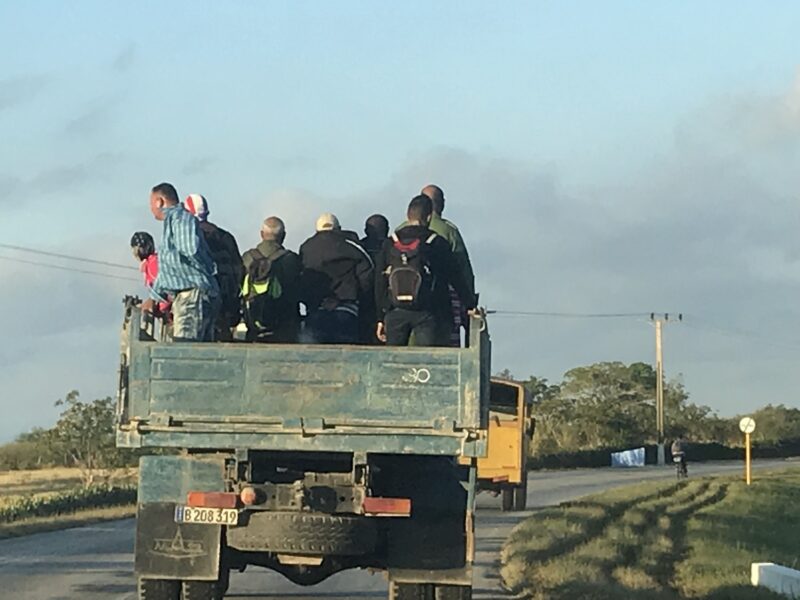

By Alfredo Merat
I would like to express my deep love for Cuba, its people, art, music and the beauty of the island itself.
Recently, I had the opportunity to visit Havana while completing my record titled “Cubanismo Illegal: Songs of Protest.” This project was initiated during the Obama administration, a time when it seemed like progress was being made toward positive change.
During that period, the reopening of the U.S. embassy and John Kerry’s visit to the island signaled a shift in relations. Several projects were approved, although the blockade and embargo imposed in 1959 in response to the Cuban revolution and the Russian power play disaster remained in place, causing significant hardship.
Fidel Castro’s regime turned into a leftist dictatorship, solely focused on maintaining his power and catering to his cronies and government employees. Meanwhile, the Cuban people continued to suffer and work for minimal wages. It’s disheartening to witness doctors, supposedly the best in the Caribbean, earning a mere $30 per month — while a bag handler at one of Castro’s Holiday Inn-like hotels in Varadero made more in a single day.
The dream of freedom in Cuba remains elusive, and human rights are often blatantly ignored. Cubans are routinely stopped, ID-checked and frisked on the streets of Havana if seen with a tourist. Those who have an address from a different city on their ID cards risk hefty fines or imprisonment. Any protests in Cuba are rapidly quashed by the regime.
With the passing of Fidel Castro, his brother Raúl Castro assumed power, and the new regime made some efforts to address human rights issues. They allowed Cubans to open small businesses and local restaurants, and reopened communication channels with the United States. Airbnb offered apartments, U.S. cruise ships docked in Havana, and online travel portals like Booking offered Cuban hotels. Direct flights to major Cuban cities resumed, welcoming U.S. tourists once again, reminiscent of the heydays in the 1950s.
However, as soon as one arrived in Havana, the absence of casinos and the presence of ruins and poverty were stark reminders of the challenges faced by the Cuban people.
Unfortunately, the progress made during the Obama administration was undone by the Trump administration. Misinformation about travel restrictions and activities in Cuba spread like an earthquake, leading to a sudden decline in U.S. tourists.
However, it’s important to note that it is still possible to visit Havana. Personally, I continue to travel there, booking an Airbnb and declaring my trip as a “cultural exchange” to the American Airlines agent. I pay the $100 visa fee to a Cuban agent at the gate before boarding and carry cash (euros or U.S. dollars), since credit cards are not accepted. If you prefer a five-star hotel, it’s advisable to book through a Canadian tour operator.
I highly recommend visiting Havana during the December Jazz Festival and International Latin Film Festival, which showcase the vibrant cultural scene of the city.
The setbacks caused by the Trump administration, including the mysterious audio disease affecting U.S. embassy staff, the subsequent embassy shutdown, hurricanes, and the COVID-19 pandemic, shattered any hopes for the Cuban people. The common people in the countryside, small villages and the working class, who were promised so much by Fidel’s revolution, find themselves starving and lacking basic necessities.
I plan to return to Cuba in September, just as I did last time, filling up the two suitcases I’m allowed to check with whatever I can gather or purchase. Now, they need food, hygiene essentials for women, toothpaste, laundry detergent, extra-strength Tylenol, antibiotics, condoms, old telephones, laptops, iPads, sneakers and more.
I am reaching out to several NGOs that may provide cargo assistance. I also hope to appeal to our Hamptons community, which has always risen up to support worthy causes. A GoFundMe page is in the works. You can check my @alfredomusika handle on Facebook or Instagram for progress.
Cuba is currently facing dire circumstances, and it is crucial for the Biden administration to promptly assess its options. There are already threats from Vladimir Putin, who questions why he should not be allowed to station missiles in Cuba or South America, citing the U.S.’s deployment of missiles in the Baltic region. If we do not act swiftly, we risk a return to the nuclear threat debacle of 1962.
Over the past 13 years, as I have interacted with and observed the Cuban people, I have seen a sense of defeat among them. Despite their hunger, they remain friendly (crime is virtually nonexistent under an authoritarian Cuban regime). They are trapped, unable to effect any significant change, and many choose to depart on makeshift boats, risking their lives in perilous journeys to reach the United States.
Fortunately, the Biden administration has reopened the embassy that was closed by Trump in 2020. They have also allocated 20,000 parole visas to assist and reduce the number of Cubans opting for such dangerous journeys.
In conclusion, I wanted to share my experiences with the Cuban people and shed light on their current plight. It is my sincere hope that the Biden administration swiftly renews the progress made during the Obama years. Otherwise, we may find ourselves embroiled in a crisis reminiscent of the 1962 nuclear threat.
I urge the community to extend their support to help alleviate the dire needs of the Cuban people.
Alfredo Merat is an artist, activist and musician based in Sag Harbor for 35 years. His new album, “Cubanismo Illegal: Songs of Protest,” will be released on July 14.
 More Posts from Viewpoint
More Posts from Viewpoint